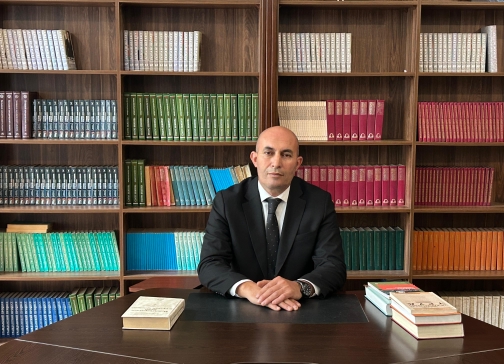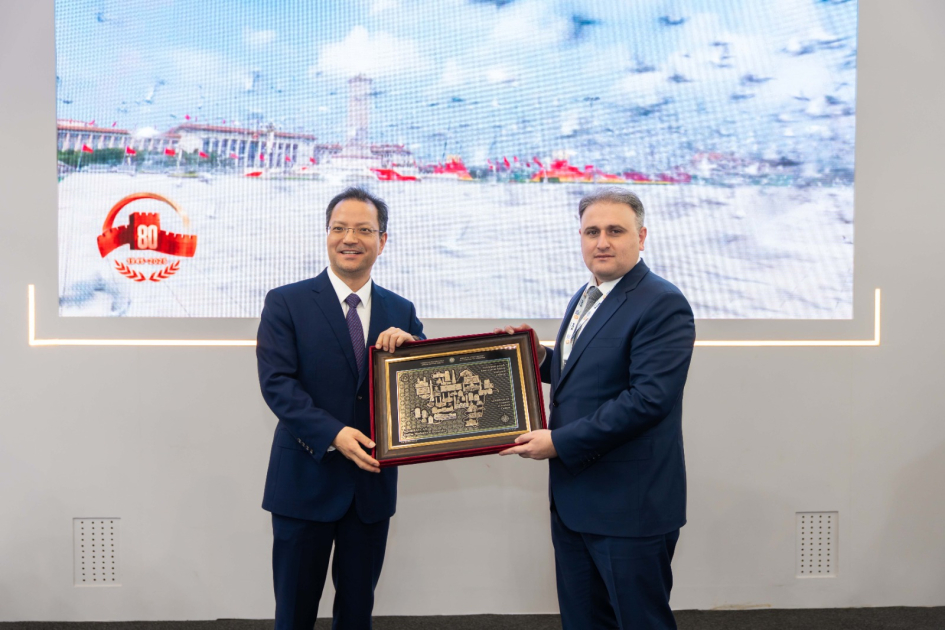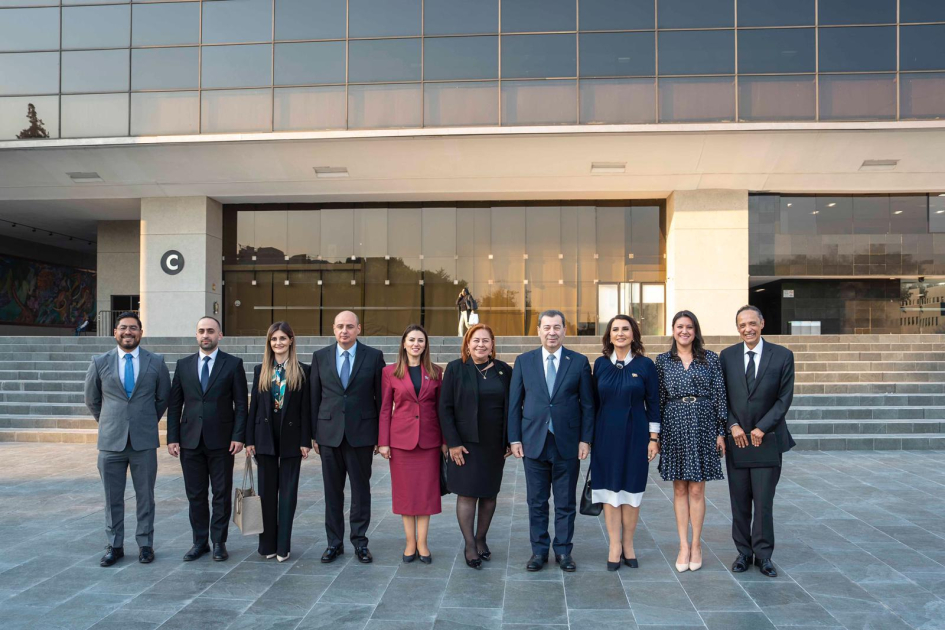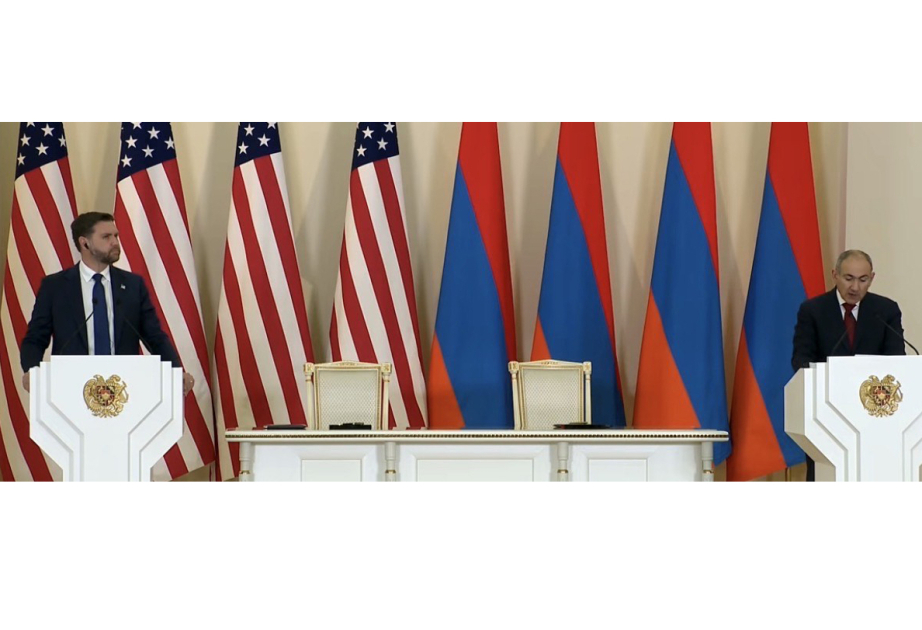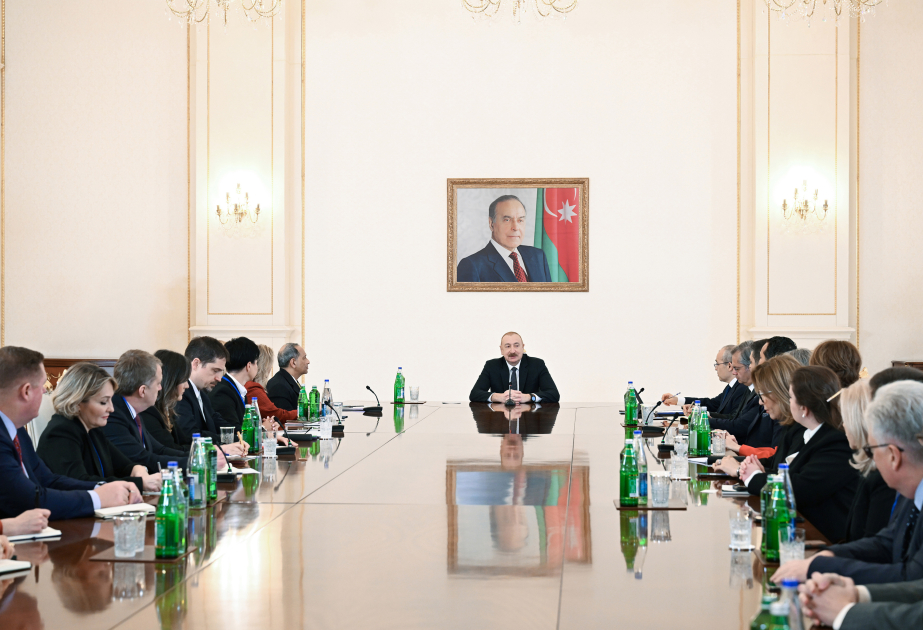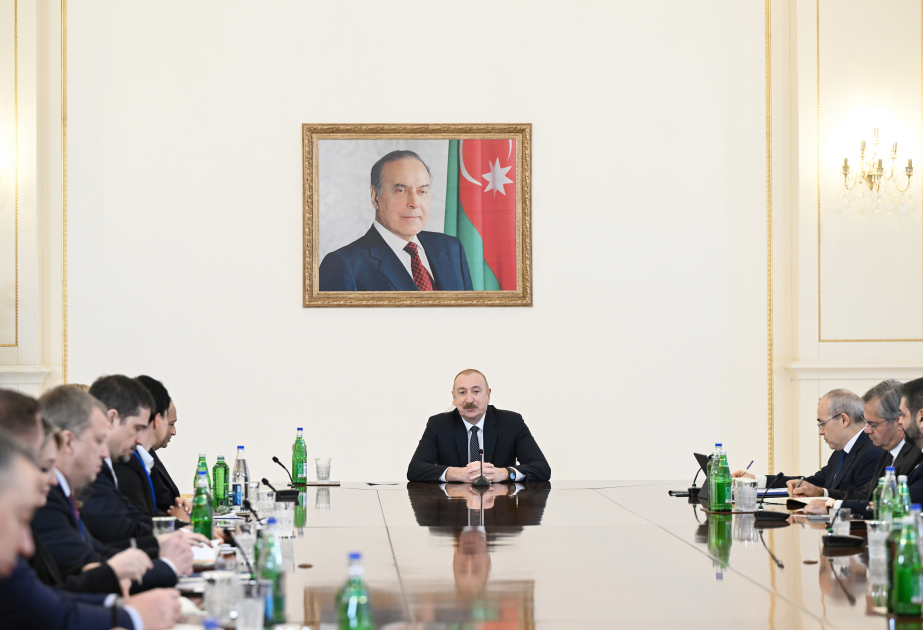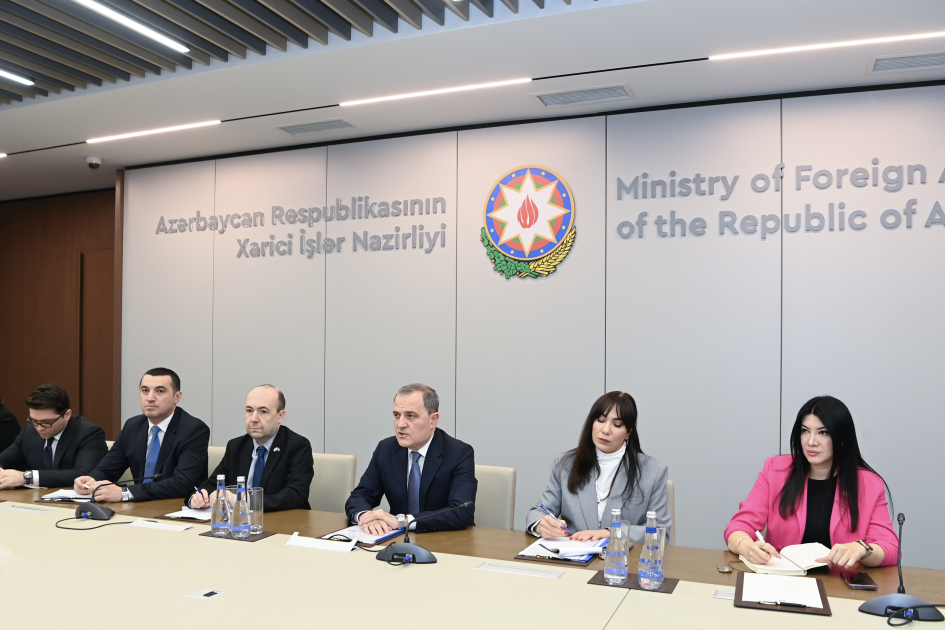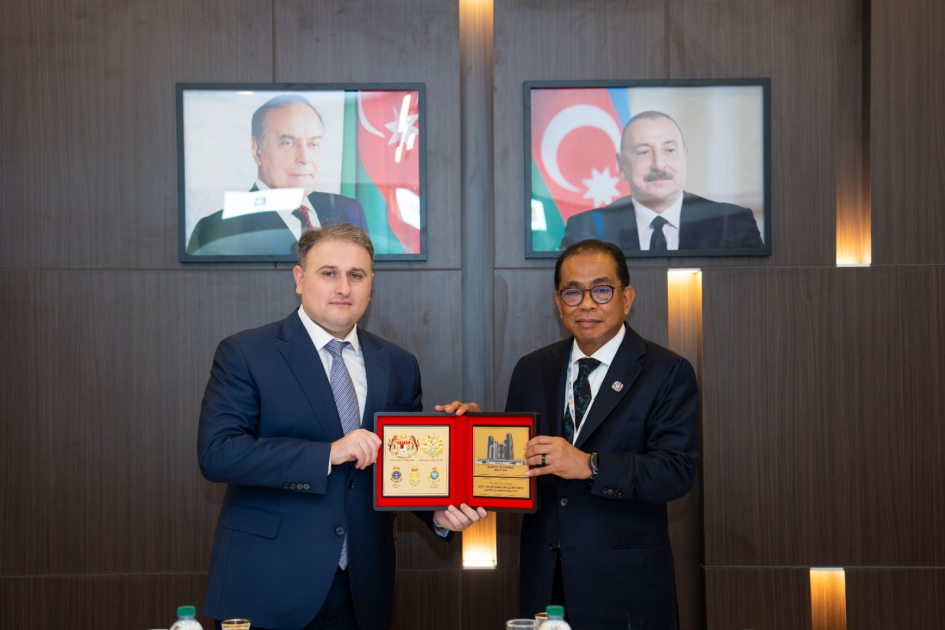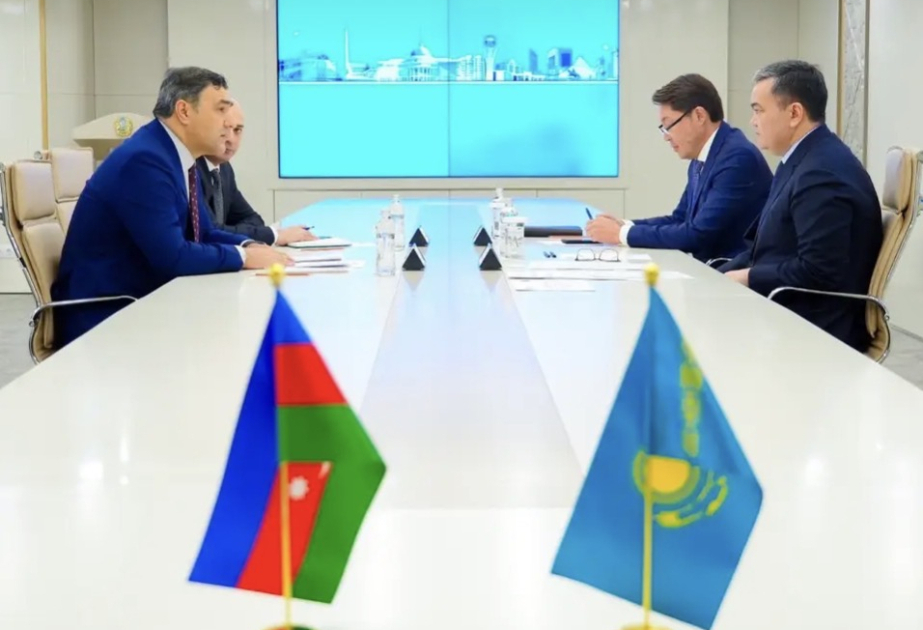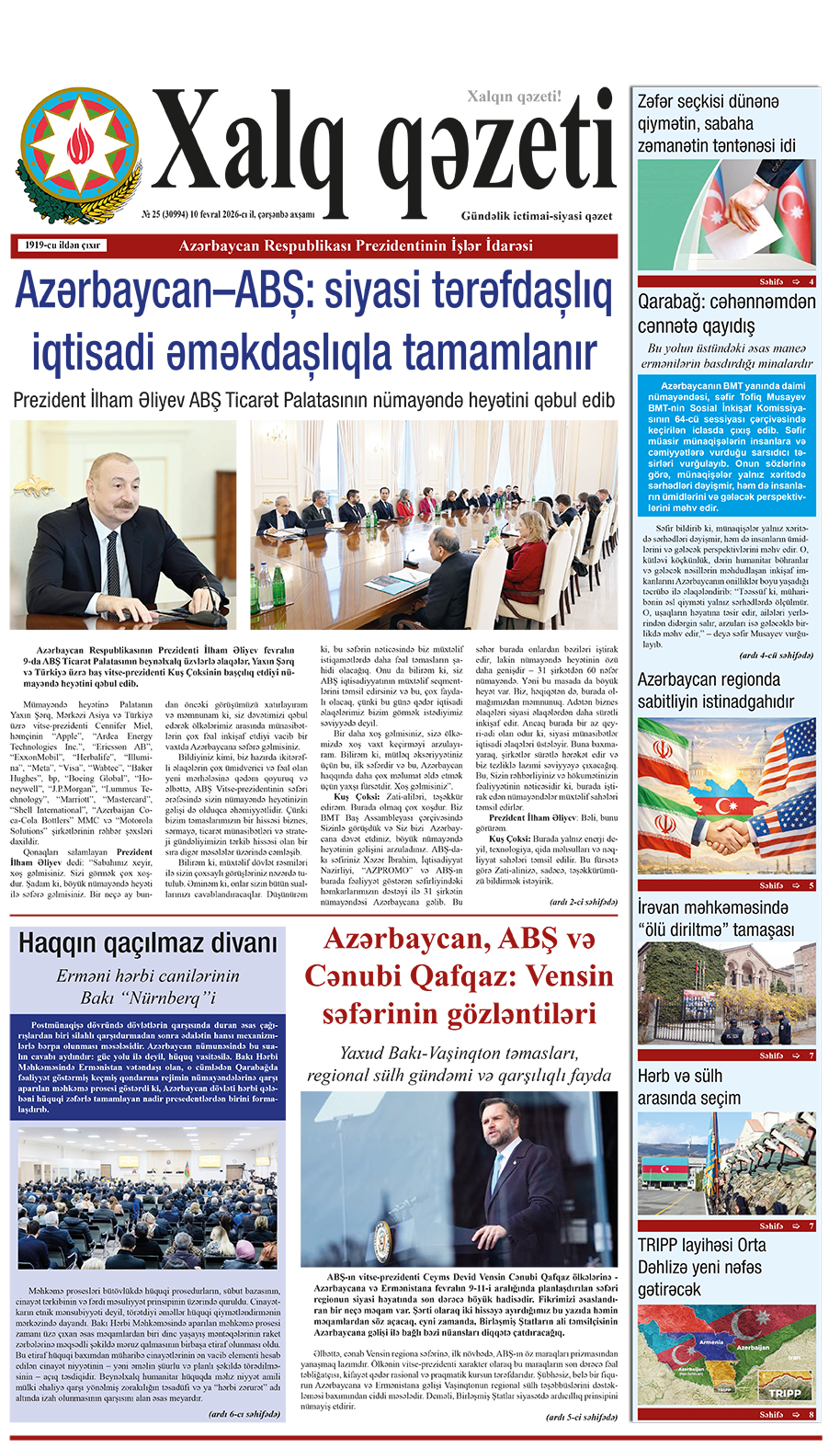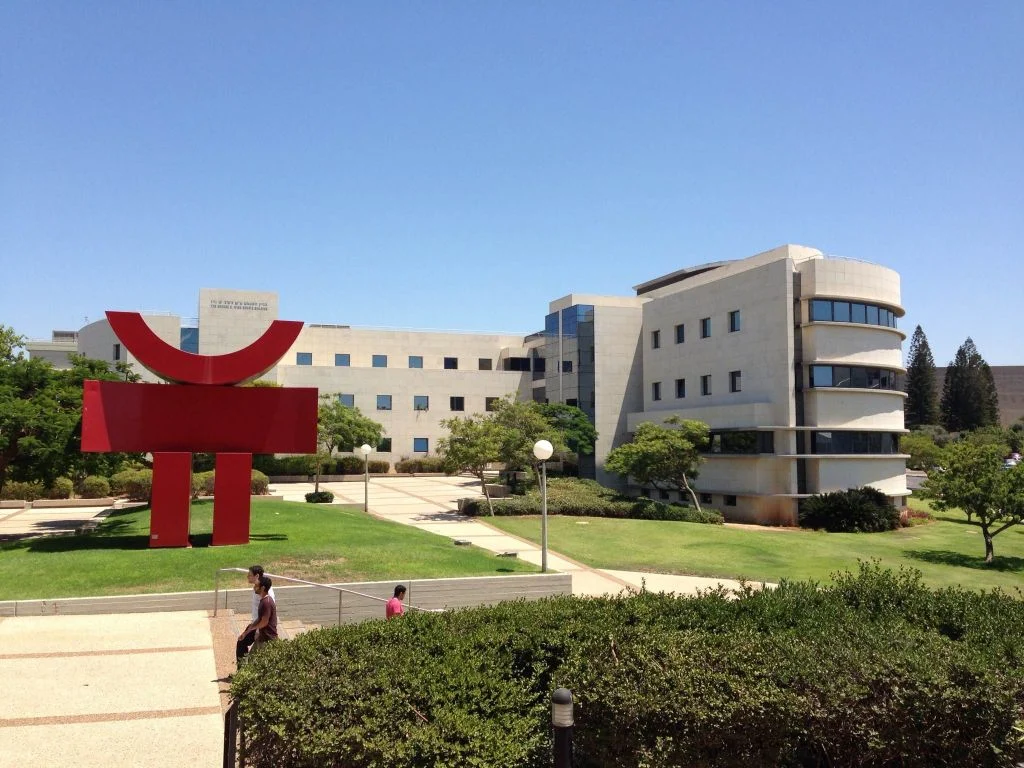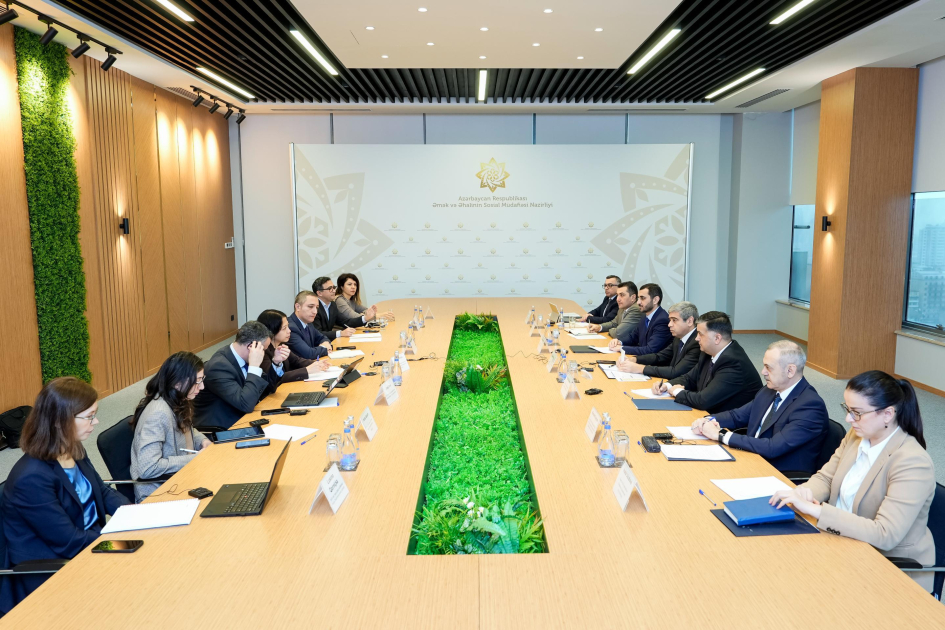Philosophical-synergistic analysis
Article XI
Successful national leaders do not write history, they create history by becoming history themselves.
author
Nationwide Solidarity: The New Transformation of Political Synergy
In article X, we emphasized the relevance of philosophical-synergistic examination of the possibilities of transformation of political and electoral solidarity into permanent social solidarity through political synergy. Philosophical understanding of this aspect of leadership is new. Because the problem is related to factors of a different nature, which are deeply rooted in socio-cultural and political layers. However, if it is approached from the perspective of successful leadership, it is extremely difficult to adequately understand it in the absence of any research experience.
However, there is a reality about Azerbaijan that greatly clarifies this complex cognitive situation and is rich in arguments. That reality is related to the activity of the Azerbaijani leader exclusively aimed at creating national solidarity. Here, philosophically and politically, it is necessary to turn to a theoretical point in order to visualize the situation more clearly.
a) Creative personality and history: French and Anglo-Saxon approach
In fact, the French, the British and the Americans look at the issue in a broader aspect - generally, in the context of creative personality - history. And we analyze it specifically in the aspect of how political-national leaders are historically evaluated as creative personalities. Of course, the problem is difficult to investigate due to the exceptionality of the research experience, in addition to being new. But we have a strong political and practical argument: the successful leadership experience of the President of Azerbaijan Ilham Aliyev! Therefore, let us first look at the French and Anglo-Saxon theoretical research method.
According to French philosophers, the role of a person in creative personality-history relations is determined by the person's living activity. Therefore, in order to give a historical value to any great person and to evaluate him philosophically, it is necessary to look at the concrete defining moments of a person's activity and the results obtained.
The Anglo-Saxon school, in principle, does not object to this position, but no man is eternal. Therefore, in the philosophical evaluation of any creative person, his idea, activity and the interpretation of the researcher investigating these points should be taken into account. It turns out that in the Anglo-Saxon school, the idea and the activity of the creative subject are taken as a synthesis. But in what cases can the evaluation of that synthesis be called philosophical-scientific? At the present moment, the Anglo-Saxon school stipulates that the researcher investigating creative personality should be a "creative interpreter" and should evaluate the personality in the context of the result. At the same time, the researcher should philosophically understand the activity of the creative personality due to its general social utility.
From these points, which we have expressed very briefly, it can be concluded that the common point for the French and Anglo-Saxon schools is the personal qualities, intellectual and intellectual characteristics of a creative personality (regardless of the field of activity) and the results obtained during his life, his idea, intention, ideology and his social usefulness should be evaluated in interaction. At this time, the subject who investigates the creativity (activity) of that person should be a creative interpreter. In this status, the interpreter, in fact, creates a philosophy of personality activity.
b) Political-national leader and history: a study in the synthesis of two schools
Is a political application (or rather, a creative interpretation) of the highlighted philosophical points possible, even if it is short? In our opinion, it is not only possible, but also relevant for the political-theoretical understanding of President Ilham Aliyev's activity as a political-national leader.
Therefore, first of all, the identity of the political-national leader and the content of his live activity are important. Ilham Aliyev has proven in his practical activities that he is very capable in communication. Researchers emphasize that the President of Azerbaijan communicates with the leaders of the world's major states at a sufficient, high level, and that is why he always achieves success. In the modern historical stage, this quality of the personality of political-national leaders is also studied separately by well-known leaders of the world. Let's show an example.
Professor Fred Irwin Greenstein is recognized as one of the leading experts in political psychology. He examines political leadership. He is also a private political, psychological and philosophical researcher of the American presidency. There is a lot of experience in studying the leadership qualities of great political figures. He is currently the head of the Political Leadership Study Program at the Woodrow Wilson School at Princeton University, USA.
According to F. I. Greenstein, the role of the leader is especially important when a new political situation that has no analogues in the past arises. At this time, as a result of the influence of factors that make the situation complex and contradictory, the leader must choose between different forces that offer different political solutions. It is in such bifurcation ("crossed") situations that the leader's personal qualities are maximally manifested. The leader believes that the more sensitive the environment reacts to the leader's suggestions, the more important his personality is. With this, the leader's position in the political system becomes more legitimate and high. It also means that the inner "I" of the leader has a very powerful influence!
Then, F. I. Greenstein goes a little further and examines which personal qualities of the leader play a key role in this process. According to his conclusion, the leader's communication ability, organizational talent, political skill, potential for political foresight, thinking style (for example, political rhetoric, diplomatic expression style, etc.) and emotional stability play a decisive role!
Not only F.I. Greenstein, but also many philosophers, leaders and political scientists emphasize that the leader's personal qualities, first of all, the ability to communicate, are one of the main factors of success at the modern stage (among them, S. and T. Kuchmarski, B. Kellerman, A. Brown, G. Feyrholm, K. Hockinson, E.V. Kudryashova and others can be mentioned).
Perhaps under the influence of general philosophical and political ideas like this, Sheryl Sandberg, the director of operations of "Facebook" (Sheryl Sandberg) came to the conclusion that "true leadership is beyond individuality"!
c) Ilham Aliyev's two big attacks: the beginning of a new historical stage in political synergy
Without deepening the theoretical-scientific aspect of the problem, let's look at the specific aspects of President Ilham Aliyev's activity in the light of the described factors.
Thus, in crisis situations, when new geopolitical and political conditions that have not been encountered before, when forced to act in a whole, unparalleled environment, the power of pragmatic positive decision-making should show itself together with sociability, will, and intelligence. In 2003, when Ilham Aliyev was first elected as the President of Azerbaijan, this was the situation. Ilham Aliyev had to cope with two serious tasks at the same time.
Firstly, to raise the social, political and moral solidarity within Azerbaijan to a new level. Because there was a difficult task to end the occupation. The experience since the second half of the last century has shown that it is a very complicated and difficult task for states like Azerbaijan to restore their territorial integrity and fully guarantee their sovereignty. Therefore, first of all, the internal unity and monolithicity of the society was necessary. Here, too, "unity" and "monolithicity" could neither be traditional nor analogous to the Soviet era. Because a new situation was formed in the world and in the region as a whole, and the 21st century was characterized by unique challenges. For this reason, a new model of unity and monolithicity, a system of political, social, cultural, ideological, spiritual and moral synergy, which was not practiced in the post-Soviet space, including Azerbaijan, had to be created. In addition, the situation was complicated by the existence of groups within Azerbaijan, using the Armenian occupation, trying to inflame ethnic radical separatism. They were patronized and directed from outside.
President Ilham Aliyev prepared a special strategy to cope with such a difficult task. Specifically, it deepened and expanded the internal dialogue with its citizens, all sections of the society. In a very short time, this method gave its positive result - the whole society listened to the head of state and supported him. This success excited a number of forces outside and who did not want to be friends with Azerbaijan, and they attacked from different directions to break the solidarity!
However, from the very first attack, they encountered stiff resistance from the mechanisms that Ilham Aliyev used with great success to raise the level of internal solidarity. Those mechanisms are related to the phenomena of multiculturalism and Azerbaijaniism! As the president, Ilham Aliyev turned multiculturalism into a form of coexistence of Azerbaijani society and fully legitimized it from a legal point of view as a policy implemented at the state level! It was a political-tactical and also a strategic step that has no second example in the post-Soviet space!
Azerbaijanism, in the truest sense of the word, demonstrated to the world that it has a wide unifying potential in the ideological aspect. Its concrete proofs are various projects and programs that have been implemented since 2003 and are closely related to moral, cultural, ethical, social, and axiological aspects. Another high quality of Iham Aliyev as a successful political-national leader showed itself here.
We envisage the possibilities of the President of Azerbaijan to realize the plans to achieve the actualization of multiculturalism and Azerbaijaniism as sustainable factors that give real results. To put it briefly and concretely, political will and funding were needed to implement these effective plans that existed in the idea!
By combining these two factors, President and leader Ilham Aliyev neutralized external influences, and continuously implemented the oil strategy, creating the necessary financial opportunity for domestic needs. Starting from 2003, it is possible to remember processes that require political will. To put it concretely, various foreign circles sometimes tried to create a false image of Azerbaijan in order to discredit it, sometimes resorted to concrete provocations and slanders, and sometimes tried to obstruct the implementation of energy projects. Therefore, Ilham Aliyev's repeated visits to Georgia and taking the necessary steps for the implementation of energy, transport-logistics projects there, and at the same time, his repeated visits to Turkey, Russia, and European countries were tactical fragments of a well-thought-out strategy! The result was extremely useful! Everyone already knows this!
Thus, starting from 2003, Ilham Aliyev, on the basis of his personal leadership qualities (the ability to establish communication, the ability to influence political rhetoric, political will and determination, having strategic intelligence, perfectly aligning tactics and strategy, etc.) in social, political, took effective steps in the direction of uniting moral-ethical and psychological synergy on a single basis!
This process led to the emergence of two types of synergy as a whole. One of them was the "societal synergy" that covers the whole society and performs a strong integrative function, and the other was the "leadership synergy" that ensures the unity of the President-political environment-society (or legitimizes this unity)!
With this, Ilham Aliyev began to form a concrete new example of leadership for Azerbaijan in the synthesis of French and Anglo-Saxon schools. It was a new global leadership phenomenon in general and had special parameters. To be more specific, Ilham Aliyev should have synthesized social synergy and leadership synergy under the umbrella of national solidarity! It was the beginning of a new path and the emergence of a unique form of new political-national leadership experience.
However, in order to achieve this important goal, Ilham Aliyev had to make the second attack as well as the first. And this was done in parallel and in interaction with the direction we emphasized first - the line of raising internal synergy to a new nationwide stage, starting from 2003! The second direction of attack was related to increasing the influence of Azerbaijan on the regional and global scales based on strengthening the foreign policy, raising its geopolitical role in wider geographical areas to a new level in the context of ensuring national security!
In order to do this attack, it was necessary to apply unique tactical and strategic mechanisms. The President of Azerbaijan successfully identified them and fully implemented them. These mechanisms, in addition to developing the oil strategy, will strengthen the line of work with regional and international organizations, create new geopolitical values, put forward cooperation formats, convey the truths of Azerbaijan to the world, develop relations with major geopolitical powers in accordance with special tactics, and ensure our national interests and national security in the South Caucasus. should lead to the formation of a new geopolitical landscape!
There is a need for extensive study of this line in the aspect of the emergence of national synergy (or the formation of lasting public solidarity). We will talk about it in the XII article.
(to be continued)
Fuzuli GURBANOV,
Analyst of XQ, doctor of philosophy


.jpg)

